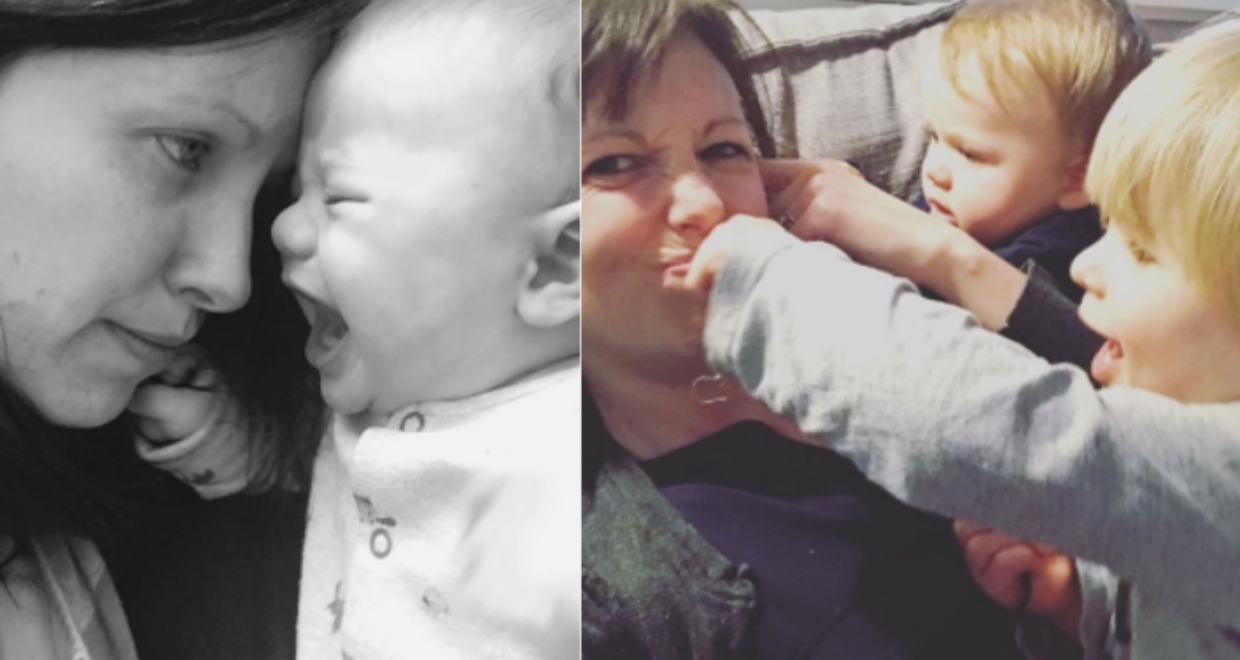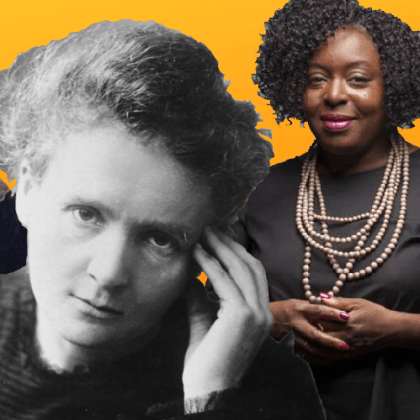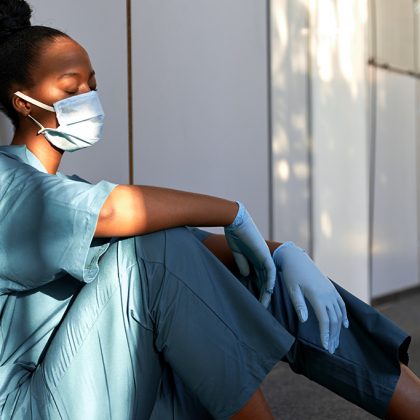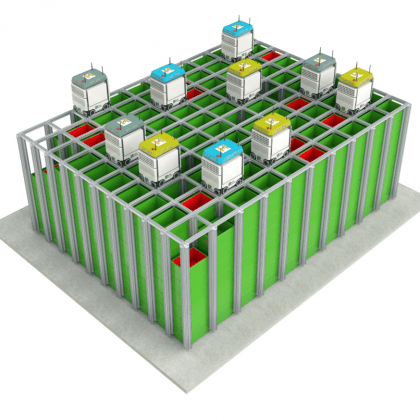A labour of love: New clinical guidance paper on treating birth trauma and baby loss from OxCADAT team
I hope my wonderful boys won’t mind my sharing these contrasting photos to give hope to clinicians and those struggling after birth related trauma. - Emma Warnock-Parkes
The October BABCP Article of the Month is from the Cognitive Behaviour Therapist (tCBT) and is entitled “Cognitive therapy for PTSD following birth trauma and baby loss: clinical considerations” by Alice Kerr, Emma Warnock-Parkes, Hannah Murray, Jennifer Wild, Nick Grey, Catherine Green, David M. Clark and Anke Ehlers.
I looked at the six pregnancy tests laid out in front of me. The results were hard to dispute, but also hard to see through the tears streaming down my face. Rather than tears of joy, I just felt fear. Flashbacks of my son’s arrival a year earlier came flooding in. All I could think was that I couldn’t go through another birth. In the weeks that followed, I couldn’t share the news without bursting into tears. My wonderful colleague and friend, Alice Kerr, put her arm around me, asking the question already going through my mind: “Do you think you might have PTSD?”
Our latest paper ‘Cognitive Therapy for PTSD Following Birth Trauma and Baby Loss: Clinical Considerations’ has been a labour of love (excuse the pun) for Alice Kerr, myself, and the team at the Oxford Centre for Anxiety Disorders and Trauma (OxCADAT). Having both experienced traumatic births, Alice and I were working together at OxCADAT, specialising in developing and disseminating Cognitive Therapy for PTSD (CT-PTSD), alongside Professors Anke Ehlers and David Clark’s team. We knew first-hand that although birth can be wonderful, for some it can be traumatic, and that the impact of PTSD can have devastating consequences for those also facing the challenges of parenthood. We also knew that getting access to good, evidence-based treatment, such as trauma focused Cognitive Therapy, can be life changing.
CT-PTSD is a NICE recommended evidence-based treatment guided by the Ehlers and Clark (2000) cognitive model, which proposes that the current threat experienced is driven by the personal meanings of trauma and the aftermath; the nature of the trauma memories (which are often poorly elaborated and disjointed); and a range of cognitive and behavioural strategies that people understandably use to cope. However, over the years therapists have shared with us their challenges in treating people who have experienced birth trauma or baby loss. To name but a few, reclaiming/rebuilding life can be challenging for new parents and birth stories can be long, sometimes spanning days or more. Difficulties trusting medical staff can impact the therapeutic relationship and for those who experienced live childbirth, having a baby to care for can make attendance challenging. Some therapists have shared that they feel unsure about how to work with meanings around loss, and some have fears about treating those who are pregnant.
We hope that by sharing our years of accumulated experience treating birth trauma at OxCADAT in this paper, we can help therapists feel more confident in delivering CT-PTSD. We also share clinical examples of addressing the common cognitive themes that arise, including appraisals linked to guilt, shame, anger, overgeneralized sense of danger, loss and perceived permanent change. Losing a baby, at any point in a pregnancy, is naturally a heart-breaking experience. It was important to us to ensure our paper also covered guidance for clinicians working with those who have experienced traumatic baby loss. We also include tips on therapist self-care, particularly important as many therapists may have personal experiences with birth and or loss. Clinicians will also find helpful video illustrations of all aspects of the therapy at the free therapist resources site (oxcadatresource.com).
While we write about the importance of memory focused interventions, I recall my own site visit experience on labour ward when heavily pregnant. Interventions such as updating trauma memories, site visits and work on trigger discrimination tend to be the most powerful interventions in CT-PTSD, but can be underused by clinicians with this patient group. A site visit was one the most helpful things I did in putting birth trauma memories firmly in the past, which reduced my anxiety going into my second birth. Despite my initial fears, birth number two for me was consequently a better and therapeutic experience. I would like to take this opportunity to thank the Southwark NHS Talking Therapies service, particularly Katina Thomas (Senior CBT Psychotherapist), who supported me in collaboration with the specialist midwifery team at King’s College London. Their invaluable help moved me beyond my first birth experience to reclaim the joyful parts of parenthood.
We hope that clinicians will find this clinical guidance paper helpful and come away feeling more confident delivering CT-PTSD for birth related trauma.
From Richard Thwaites, Editor-in-Chief of tCBT: Why I chose this article:
I chose this important clinical guidance paper as BABCP Article of the month for several reasons. Firstly this is a common presenting problem for many of us working in Talking Therapies services and secondly this a fantastically clear and well described account of how to utilise the Ehlers and Clark model for PTSD to ensure sensitive and effective CBT for this patient group.
Within the blog post Dr Warnock-Parkes and Dr Kerr reflect on their own experiences of difficult births and the subsequent impact on the writing of this paper in a way that we don’t see as often as we might like within the world of CBT. Thank you both for your honesty and expertise.
Author Bios:
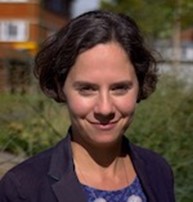
Alice Kerr is a Clinical Psychologist and CBT Therapist working as Deputy Course Director for the PG Dip in Cognitive Behavioural Therapies at the Institute of Psychiatry, Psychology & Neuroscience. Prior to her current role, she worked at the Oxford Centre for Anxiety Disorders and Trauma in Professors David Clark and Anke Ehlers’ research group.

Emma Warnock-Parkes is a Clinical Psychologist and CBT Therapist working at the Oxford Centre for Anxiety Disorders and Trauma in David Clark and Anke Ehlers’ research group. Emma specialises in developing and disseminating treatments for PTSD and Social Anxiety Disorder.
